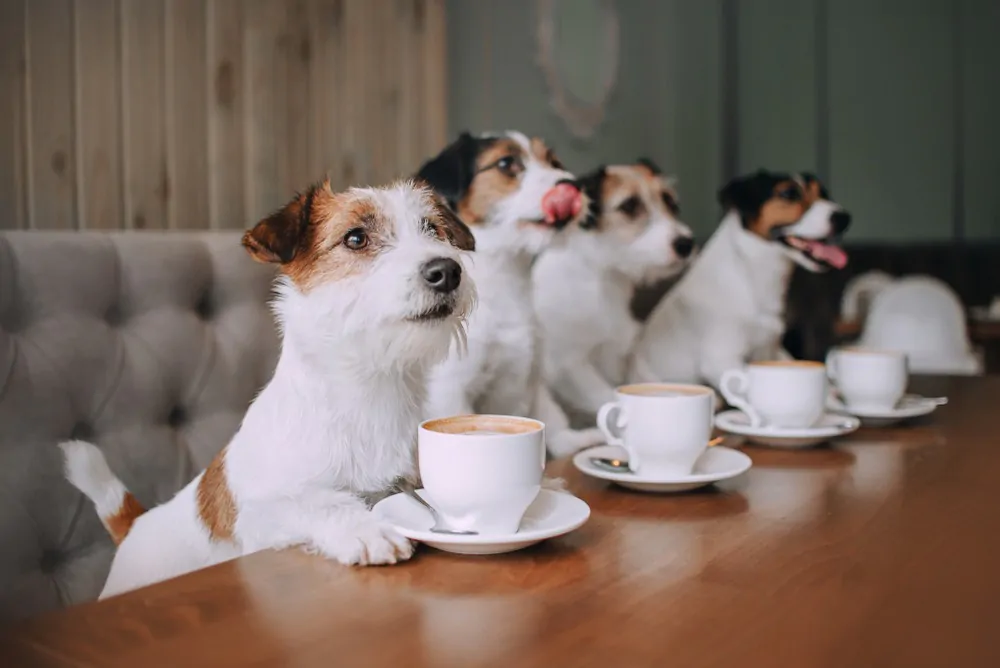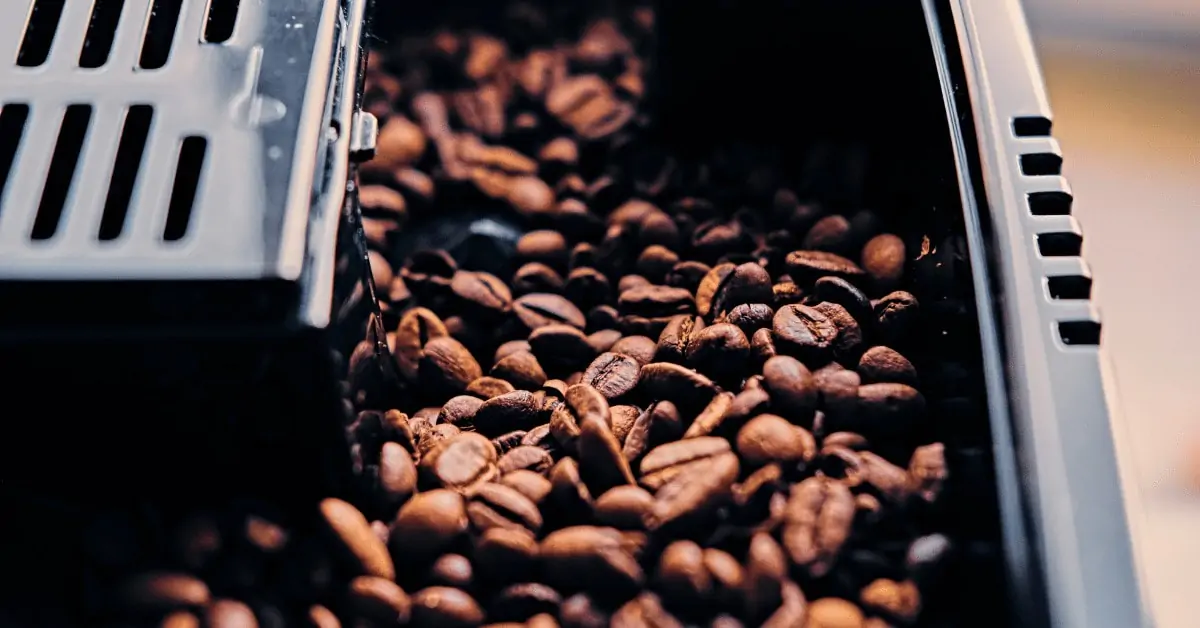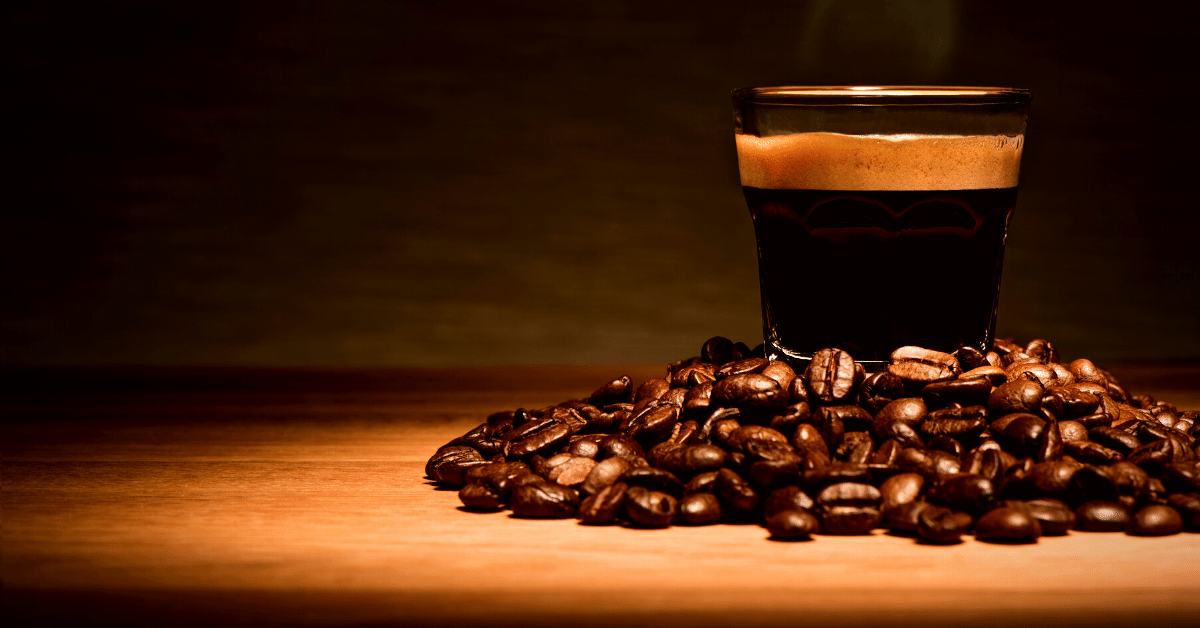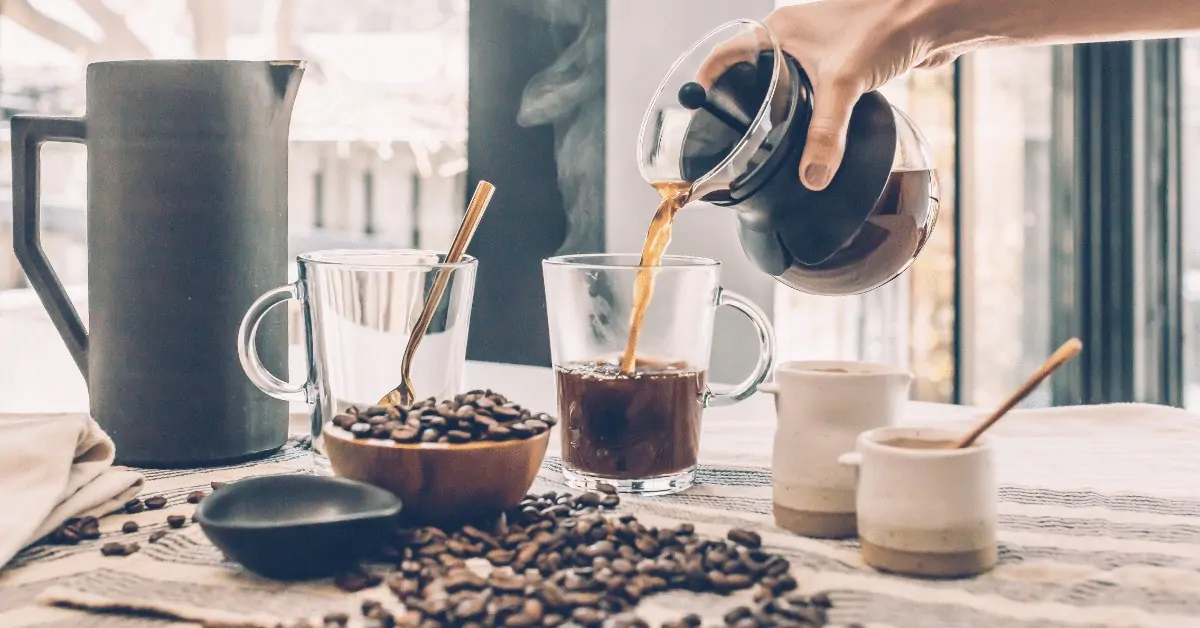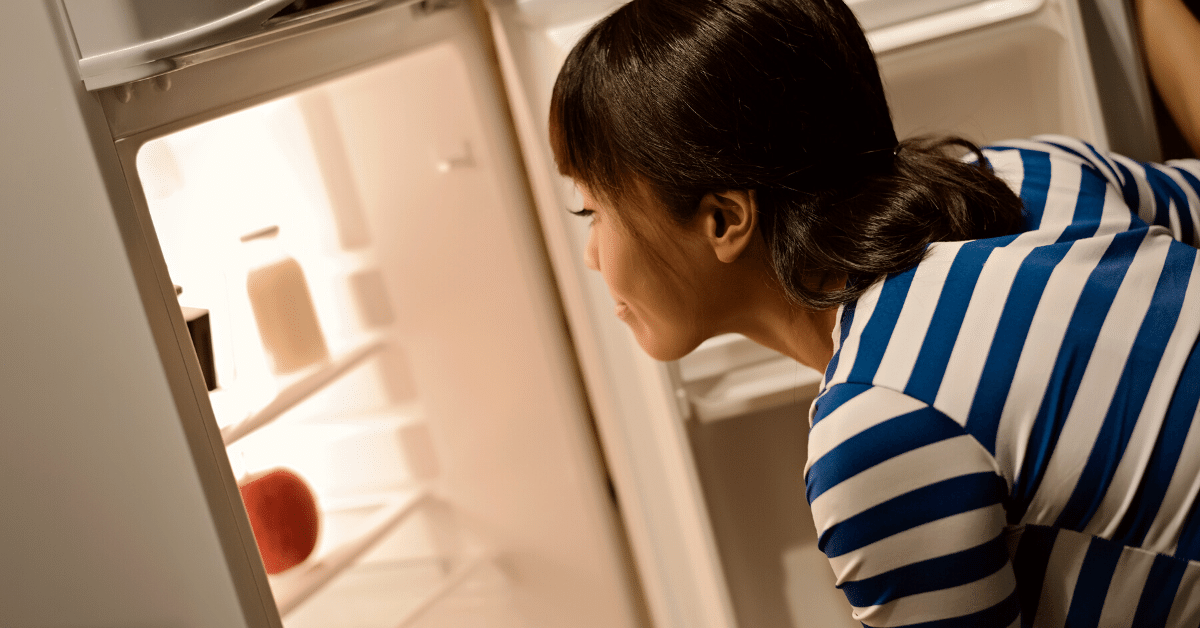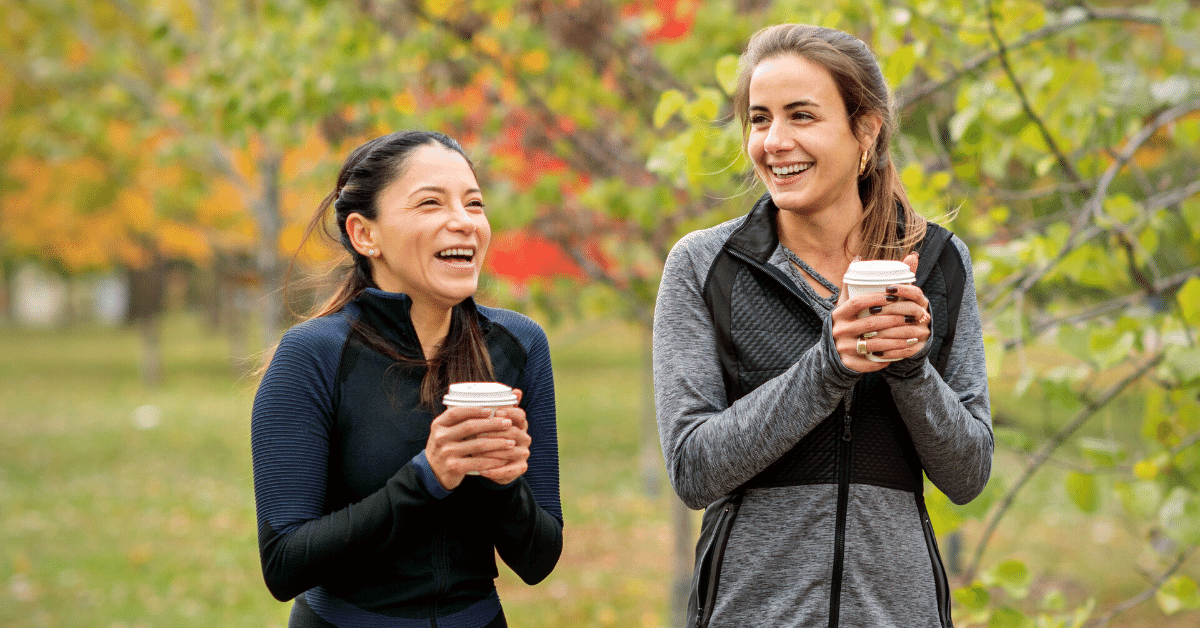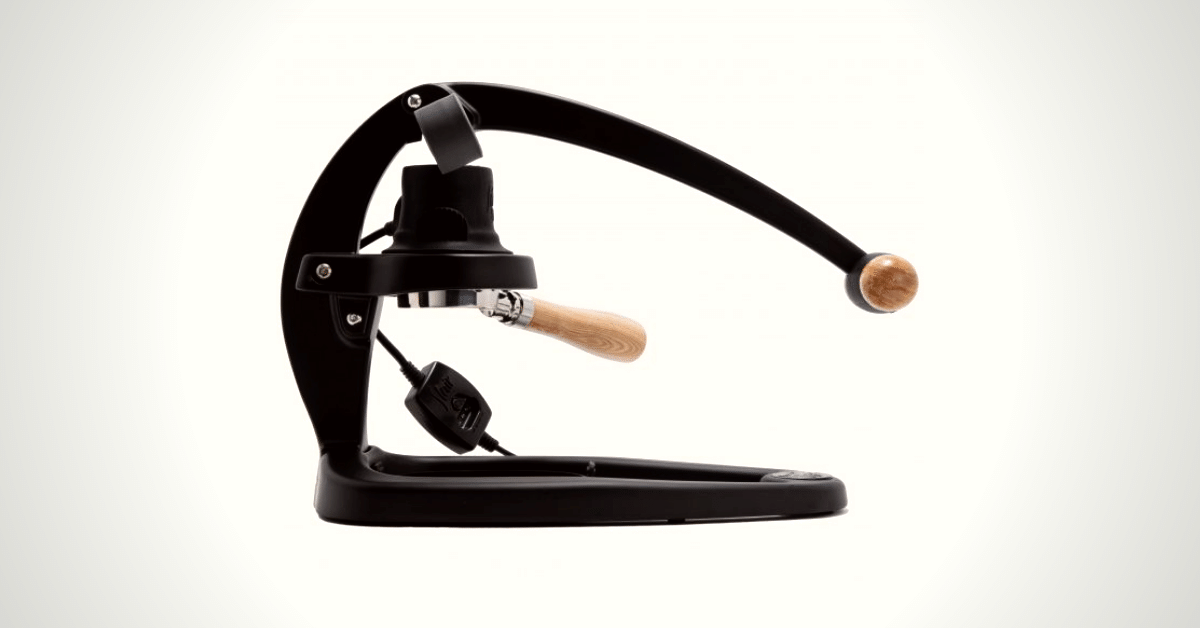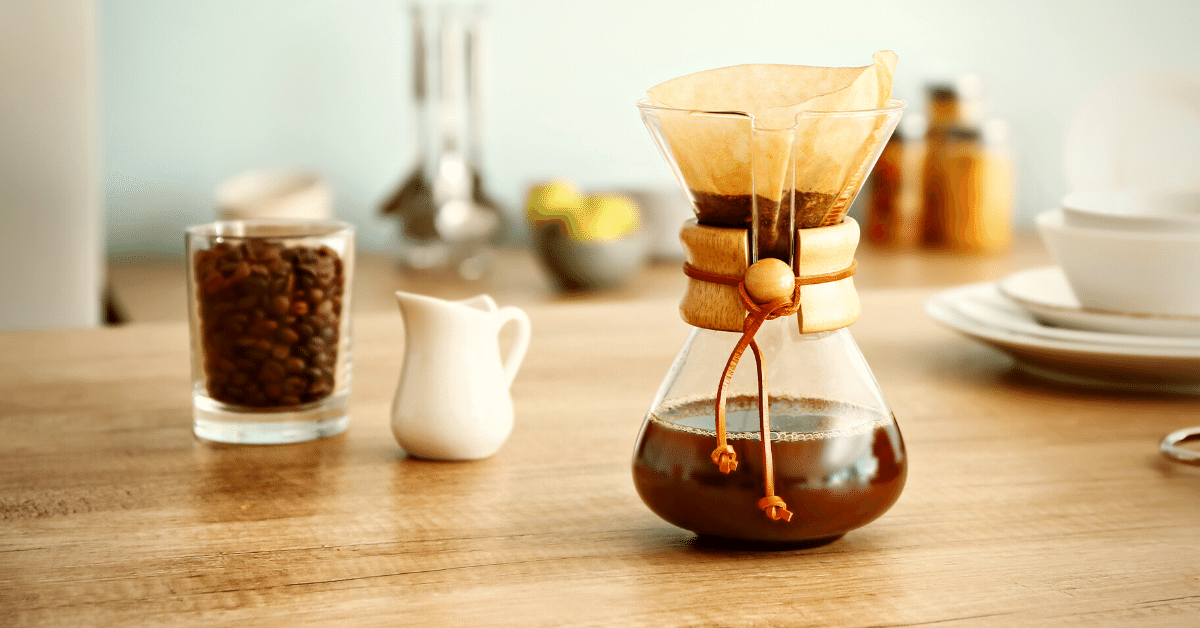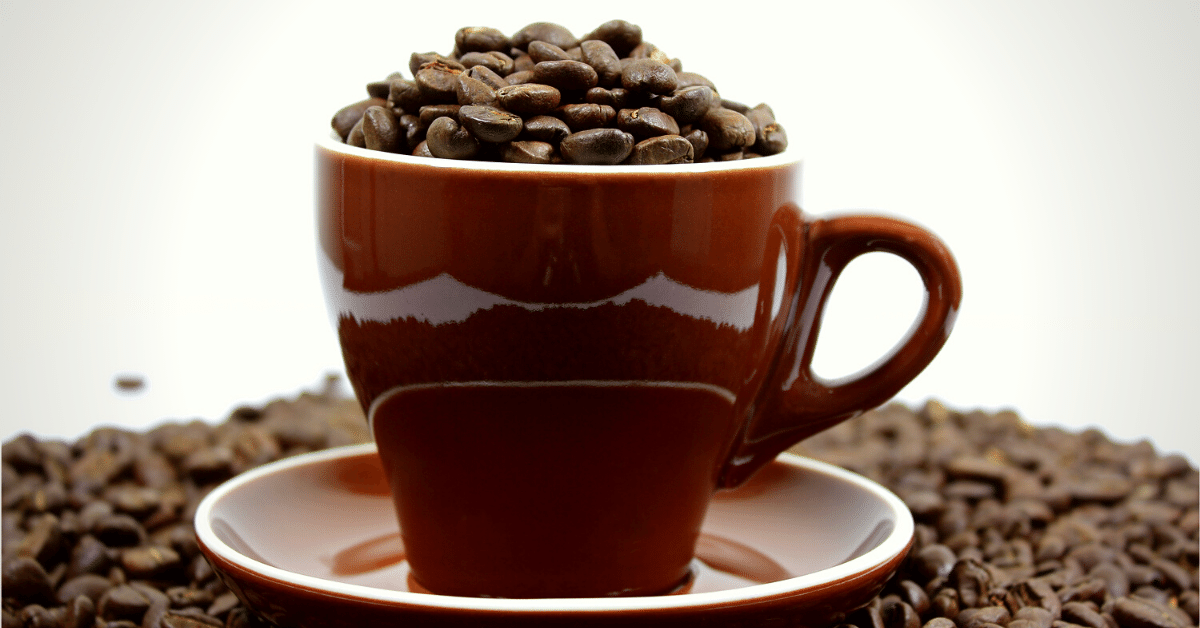Your dog’s round eyes are begging for a taste of your brew. But is coffee bad for dogs? In this article, we’ll find out how coffee affects them.
Almond milk flat white with three pumps of vanilla and chocolate whipped cream… who can say no to it? Your canine companion surely can’t. After all, dogs are omnivores, and your cup of joe looks delicious.
However, while sharing it with your pooch might be tempting, you shouldn’t. Unlike you, dogs are sensitive to caffeine. If you are wondering how coffee affects you, check out our guide on the pros and cons of coffee.
So, how does it affect dogs? And how much is too much? Today, we’ll touch on everything responsible pet owners need to know on the subject.
Let’s begin!
What Does Coffee Do To Dogs?
One cup of coffee can’t hurt, right? Unfortunately, coffee is one of those indulgences you can’t share with your canine best friend. The reason why is simple – it’s toxic to dogs.
And yes, that’s true for both plain, black coffee and your 10-topping frappuccino. So what’s the catch, you might ask? It’s the star of the show, caffeine.
As you know, caffeine is a stimulant, increasing activity in your brain and nervous system. Simply put, it makes you more alert while temporarily relieving drowsiness and fatigue.
Indirectly, caffeine also affects other body parts by changing the levels of certain hormones, including adrenaline and cortisol. These are classified as stress hormones, and, among other things, they can increase blood pressure, body temperature, and rapid or irregular heartbeat.
Of course, we also can’t forget that caffeine induces stomach acid. As a result, you may experience heartburn or upset stomach.
As a coffee drinker, I’m sure you know these temporary signs of caffeine overdose. And if you ever had “too much coffee,” you know how these symptoms can feel overwhelming.
Caffeine affects a dog’s body in the same way. However, dogs are much more sensitive to it than humans, so the side effects are much more intense.
The jitters we might experience after drinking a triple espresso are nothing compared to how caffeine affects our furry companions. The increased heart rate may cause hyperactivity and restlessness, often accompanied by excessive painting.
Just like humans, dogs may also have elevated heart rates and high blood pressure from consuming caffeine. But in their case, the effects are strong and may cause irregular heart rhythms in severe cases.
Caffeine is also tough on a dog’s gastrointestinal system and may cause diarrhea and vomiting. The latter is actually not that bad, as it may help the dog remove a portion of the consumed coffee from the body.
How Much Caffeine Is Too Much?
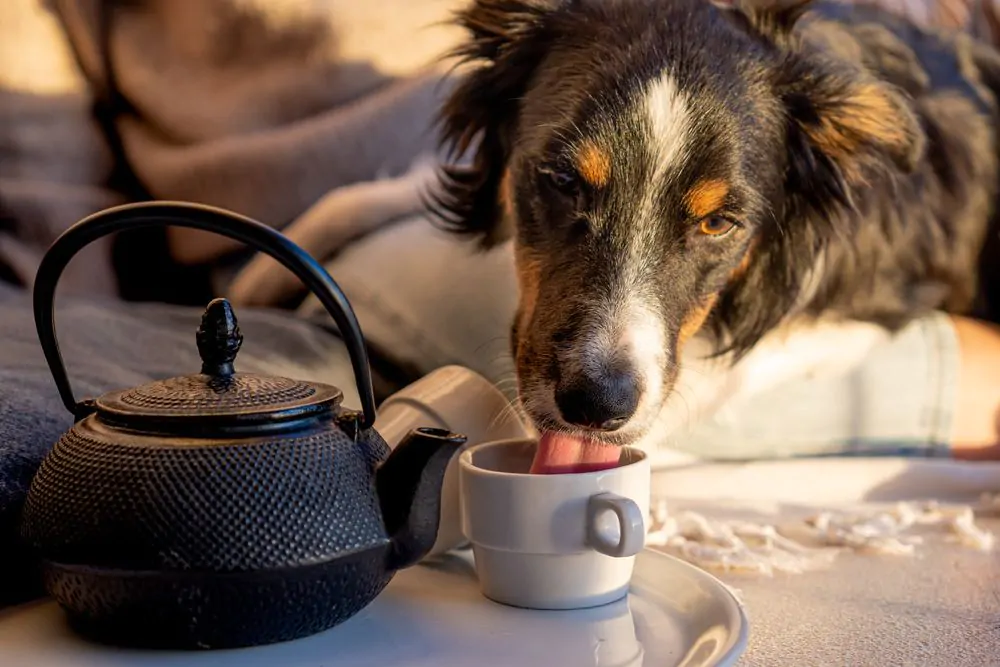
Ideally, dogs should not have any caffeine. And I’m not just talking about coffee. Tea bags and energy drinks contain caffeine, among other things, so they’re off the limits as well.
However, accidents happen, no matter how careful you might be. And in that case, how worried should you be?
Well, that depends on certain factors, including your dog’s size and health condition. Regarding size, 63 mg/lb can be considered toxic. So, for instance, only three teaspoons of instant coffee grounds is enough to cause caffeine toxicity in small dogs like Boston Terriers, for example.
Obviously, The numbers are larger when it comes to brewed java as water is added to the equation. This means a larger amount of coffee would need to be ingested to result in caffeine toxicity.
However, remember that the brewing method also affects the amount of caffeine. For instance, espresso is more concentrated than drip coffee, so it has more caffeine per ounce.
You should keep in mind that giving your dog decaf coffee instead is not a safe option either. That’s because even decaffeinated coffee contains between 1% and 7% caffeine content, and that can be enough to cause health issues.
If you are wondering will decaf coffee keep you awake, take a look at our guide on the subject.
Other Coffee Additives That Are Not Safe For Dogs
Plain black coffee is bad enough for your pooch, but your frappuccino is even worse. There are at least a few ingredients in there that dogs shouldn’t consume.
Sugar
While not toxic, sugar still isn’t good for dogs. At least refined sugar, which is a simple carb and doesn’t do much for the body besides spiking up glucose levels. If regularly fed sugar, a dog may develop long-term problems, including obesity and diabetes.
Excessive sugar intake also disrupts gut microbiota, which can result in an upset stomach, vomiting, and diarrhea.
Finally, it can also cause dental issues. Bacteria living in a dog’s mouth feed on simple carbs. While feasting on it, the bacteria produce acids that damage tooth enamel and cause gum inflammation.
Milk
Milk contains many nutrients essential for a dog’s health, including amino acids and calcium. However, one compound makes it an unsuitable addition to most dogs’ diet – lactose. You see, most dogs don’t digest milk very well, resulting in gas, loose stool, and diarrhea.
When it comes to plant-based milk, it depends on the kind. For instance, oat, coconut, and almond milk contain many vitamins and minerals that are beneficial for dogs. Macadamia nut and soy milk, on the other hand, contain compounds that can be harmful.
Xylitol
Xylitol is an ingredient that looks and tastes like sugar, but it doesn’t raise blood sugar levels and has a much lower caloric amount compared to it. For that reason, it’s commonly used in sweets, gums, and coffee creamers.
While generally safe for humans, xylitol is extremely toxic to dogs. When consumed, it’s quickly absorbed into the bloodstream, causing a rapid release of insulin. This causes a dog’s blood sugar level to drop to unhealthy levels.
This can be life-threatening if not treated right away.
Added Flavors
Do you like to make your coffee extra, with syrups and creams? I don’t blame you. Who doesn’t? However, most of those coffee toppings contain ingredients that are unsafe for dogs, like the aforementioned sugar and other sweeteners.
What To Do If Your Dog Drank Coffee
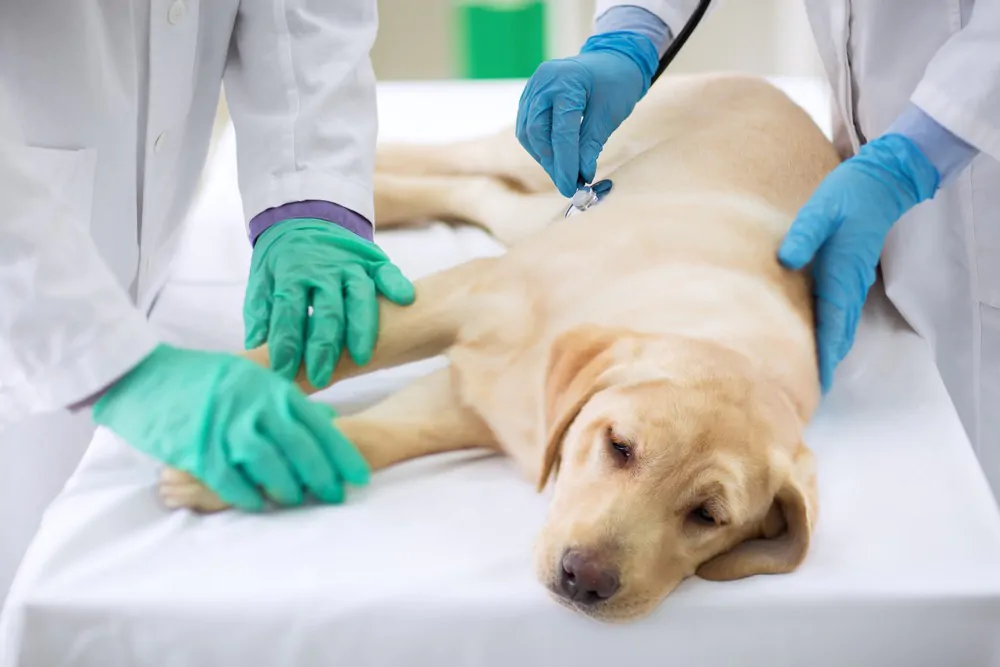
If you could rewind time and choose not to leave your morning cup unattended, you surely would. Unfortunately, you can’t. But what you can do if your dog drinks coffee is act timely and contact your vet as soon as you notice signs of caffeine poisoning in your furry friend.
And while they’ll urge you to come in as soon as possible, the vet may advise you on how to help your dog in the meantime. You don’t want to do anything without their consent, as you may cause more harm than good.
Most likely, the vet will induce vomiting to get rid of the caffeine that still hasn’t been absorbed by your dog’s system. Alternatively, they may administer activated charcoal, which acts as a sponge and soak up the toxin, preventing the gastrointestinal tract from absorbing it. The dog will also receive an IV, replenishing the lost fluid through vomiting and diarrhea.
However, you’ll probably have to play the medic if the vet’s office is hours away. For such situations, there’s a Pet Poison Helpline (855-213-6680) that you can contact for medical advice. They will give you detailed instructions on what to do in the case of an emergency.

